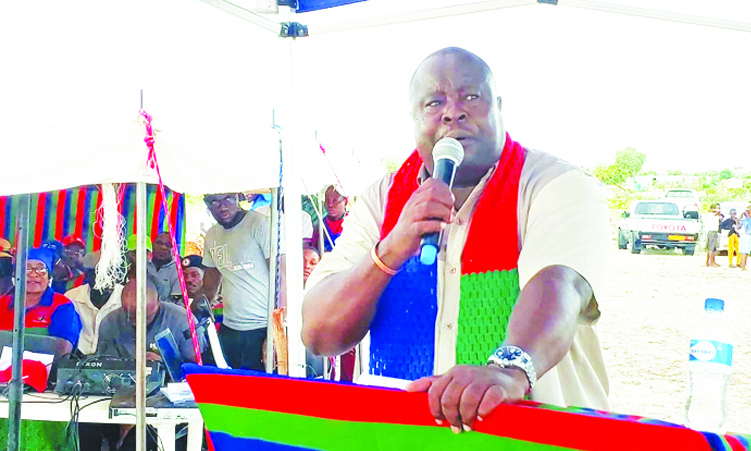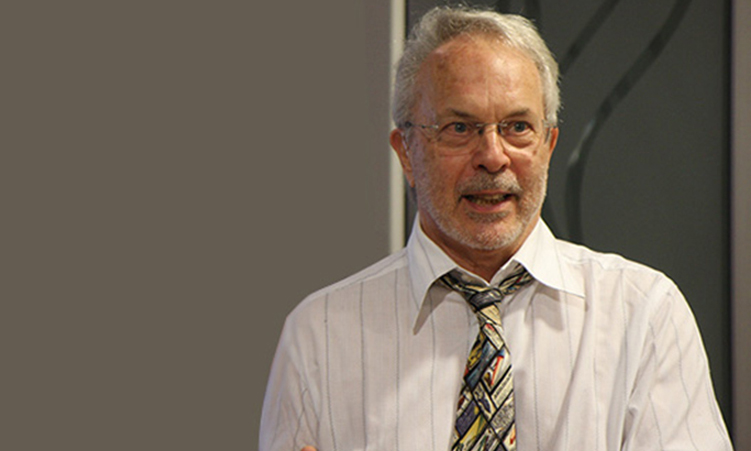Former Landless People’s Movement (LPM) deputy leader Henny Seibeb has told his former party to “grow-up and swallow the blade”.
Seibeb said this yesterday to The Namibian after joining the ruling party on Sunday.
Some LPM leaders have mocked Seibeb for joining Swapo, the same party he has blasted for corruption. Five years ago, Seibeb held up a poster which read “Voetsek Hage Geingob Voetsek”.
Now, Seibeb has rejoined the ruling party and is blasting his former colleagues.
“They’re lost. Unlike them, there are many understandable and genuine people with empathy and compassion,” he said.
He added: “I am elated and celebrating rejoining Swapo, and will contribute meaningfully to the development of Namibia.”
Asked what he brings to the Swapo table, Seibeb said he brings “experience and skills for inclusive development”.
Seibeb resigned from the LPM, a party he and former land reform deputy minister Bernadus Swartbooi founded in 2017, in June this year.
Swapo secretary general Sophia Shaningwa on Sunday said Seibeb told her about his plans to return to the party.
“All I need is for you to give him support because he came to you publicly without hiding himself,” said Shaningwa.
Shaningwa described Seibeb as an asset and a knowledgeable person.
Seibeb was welcomed alongside 200 people who joined Swapo at Khorixas.
Recently, Seibeb used his WhatsApp status to encourage Namibians to vote for Netumbo Nandi-Ndaitwah.
“Voting for smaller parties is a complete waste of votes and does not have any impact,” he wrote on WhatsApp.

Swapo deputy secretary general Uahekua Herunga says Seibeb was never expelled from Swapo.
“He just resigned and rejoined. Being a democratic party, he is most welcome,” he says.
Herunga says everybody in the political arena listening to what individual politicians have said in the past lacks political maturity.
LPM spokesperson Lifalaza Simataa said Seibeb’s comments are misplaced, as it is the general public that has mocked and poked fun at his convictions and principles, not the LPM.
“As the general public actively recalls his insults towards the ruling party, the late president and their general competencies as a governing body, merely to return to that same party he had so many words for.
“The general public has likened it to politics of the belly, or flip-flopping,” Simataa said.
He said the LPM advises that Seibeb focuses on expressing to the public how Swapo is suddenly competent in his eyes, as that would be a more effective way of addressing the laughter aimed at him.

ZIGZAG
Former ambassador Pius Dunaiski says self-interest is mainly at the root of individuals who ‘zig zag’ from Swapo and rejoin when they realise their political move hadn’t met their expectations.
“The exceptions could be Vipuakuje Muharukua and Katuutire Kaura. Both were pushed out in a power struggle within the DTA/PDM and then joined Swapo to ‘eat’. Nothing changed in Swapo to ascribe their political moves. Naked political ambition was in plain sight,” he says.
Dunaiski says the opposition in Namibia was always regarded as weak and organised along tribal fault lines, but things have changed now.
“The trend of wash-aways returning will not impact the rising threat that Swapo may lose because of a deepening or increasing sentiment of disappointment and disillusionment, particularly among the youth,” he says.
“The politicians returning to Swapo are widely regarded as lacking principles and values and those engaging in such moves are bearing the scorn of the people in general,” he says.
He says the phenomenon of leaving and returning after heavily criticising Swapo damages the trust people have in state structures and that it is bad for democracy and induces more confusion.
“It is contributing to political instability and lack of accountability in general,” he says.
“Those rejoining could cause more division in Swapo, as older members might feel overlooked if the new ones are favoured. Swapo would feel the negative impact too,” he says.
Political analyst Ben Mulongeni says when politicians leave the party, it could be because they do not like how certain leaders handle matters.
“The personality of the leader makes people hate the party. We need to understand why people join parties; is it because the leader is their tribesman, friend, family, they want a promotion or are they following the ideology?” he asks.
Political scientist Rui Tyitende says Namibian politics is not short of political promiscuity.
“Most political leaders that left Swapo tend to rejoin when their conditions, ambitions and other needs are not met when in the opposition,” he says.

Tyitende says rejoining Swapo has been a classical example of ‘politics of the belly’ as reasons provided are not on ideological or policy grounds.
“So, what has changed? He on numerous occasions labelled the Swapo leadership as corrupt and at times wanted to physically mishandle Swapo MPs in the National Assembly. Have they kissed and made up?” he asks.
“Ironically, in 2020, Seibeb labelled Sophia Shaningwa as incompetent and said president Geingob was a dictator. Interestingly, he was welcomed back into the party by the very same Shaningwa whom he accused of incompetence,” he says.
Political analyst Henning Melber says the intensity of changing parties seems exceptional in Namibia.
“It is not uncommon in other democracies too, especially in times when the composition in the government might be changing,” he says.
He also says politics in Namibia has a degree of family attached.
“Staying in the ‘wilderness’ seems not to be an attractive option for those who were always engaged in politics,” says Melber.
Political analyst Ndumba Kamwanyah says leaders often rejoin Swapo due to unmet ambitions or conditions within opposition parties.
“Swapo’s dominance and resources provide better opportunities for career advancement, influence and stability,” he says.
Kamwanyah says the trend weakens opposition parties by depleting their leadership ranks and credibility.
Stay informed with The Namibian – your source for credible journalism. Get in-depth reporting and opinions for
only N$85 a month. Invest in journalism, invest in democracy –
Subscribe Now!


